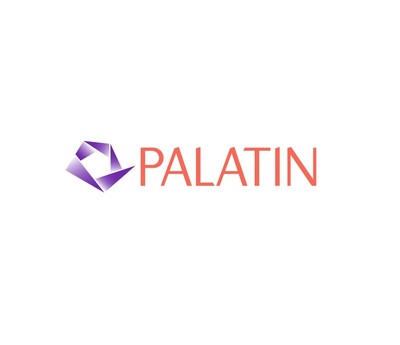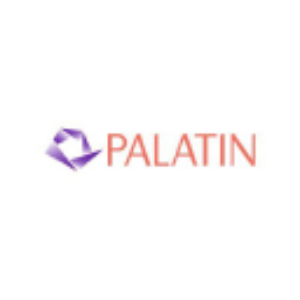Palatin Presents Foundational Data on Novel and Highly Selective Melanocortin 4 Receptor Agonists at the 19th Annual Peptide Therapeutics Symposium
Palatin Technologies (NYSE American: PTN) presented foundational data on novel and highly selective Melanocortin 4 Receptor (MC4R) agonists at the 19th Annual Peptide Therapeutics Symposium. The company has identified specific structural components responsible for MC1R agonism, which causes increased skin pigmentation, and modified them to optimize MC4R activity while reducing MC1R activity. This breakthrough could potentially eliminate skin color changes in obesity treatments.
The company plans to begin clinical development in 2025, targeting obesity treatment. Currently, Palatin is conducting a Phase 2 clinical trial combining bremelanotide with tirzepatide in obese patients, with results expected in Q1 2025.
Palatin Technologies (NYSE American: PTN) ha presentato dati fondamentali su nuovi e altamente selettivi agonisti del recettore melanocortin 4 (MC4R) al 19° Simposio Annuale sulle Terapie Peptidiche. L'azienda ha identificato componenti strutturali specifici responsabili dell'agonismo del recettore MC1R, che causa un aumento della pigmentazione della pelle, e li ha modificati per ottimizzare l'attività del MC4R riducendo al contempo l'attività del MC1R. Questa scoperta potrebbe potenzialmente eliminare i cambiamenti di colore della pelle nei trattamenti per l'obesità.
L'azienda prevede di avviare lo sviluppo clinico nel 2025, mirato al trattamento dell'obesità. Attualmente, Palatin sta conducendo una sperimentazione clinica di Fase 2 combinando bremelanotide e tirzepatide in pazienti obesi, con risultati attesi nel primo trimestre del 2025.
Palatin Technologies (NYSE American: PTN) presentó datos fundamentales sobre nuevos y altamente selectivos agonistas del receptor melanocortina 4 (MC4R) en el 19º Simposio Anual de Terapias Peptídicas. La compañía ha identificado componentes estructurales específicos responsables del agonismo del receptor MC1R, que causa un aumento en la pigmentación de la piel, y los ha modificado para optimizar la actividad del MC4R mientras reduce la actividad del MC1R. Este avance podría eliminar potencialmente los cambios en el color de la piel en los tratamientos para la obesidad.
La empresa planea iniciar el desarrollo clínico en 2025, con el objetivo de tratar la obesidad. Actualmente, Palatin está llevando a cabo un ensayo clínico de Fase 2 combinando bremelanotida con tirzepatida en pacientes obesos, con resultados esperados para el primer trimestre de 2025.
Palatin Technologies (NYSE American: PTN)는 제19회 펩타이드 치료 심포지엄에서 새로운 고도로 선택적인 멜라노코르틴 4 수용체(MC4R) 작용제에 대한 기초 데이터를 발표했습니다. 회사는 피부 색소 침착을 증가시키는 MC1R 작용을 담당하는 특정 구조적 구성 요소를 확인하고 이를 수정하여 MC4R의 활성을 최적화하면서 MC1R의 활성을 줄였습니다. 이 혁신은 비만 치료에서 피부 색깔 변화의 가능성을 없앨 수 있습니다.
회사는 비만 치료를 목표로 2025년에 임상 개발을 시작할 계획입니다. 현재 Palatin은 비만 환자에게 bremelanotide와 tirzepatide를 조합한 2상 임상 시험을 진행 중이며, 결과는 2025년 1분기에 예상됩니다.
Palatin Technologies (NYSE American: PTN) a présenté des données fondamentales sur de nouveaux agonistes hautement sélectifs du récepteur mélanocortine 4 (MC4R) lors du 19ème Symposium Annuel sur les Thérapies Peptidiques. L'entreprise a identifié des composants structurels spécifiques responsables de l'agonisme du récepteur MC1R, qui entraîne une augmentation de la pigmentation de la peau, et les a modifiés pour optimiser l'activité du MC4R tout en réduisant l'activité du MC1R. Cette avancée pourrait potentiellement éliminer les changements de couleur de la peau dans les traitements de l'obésité.
L'entreprise prévoit de commencer le développement clinique en 2025, ciblant le traitement de l'obésité. Actuellement, Palatin réalise un essai clinique de Phase 2 combinant la bremelanotide avec le tirzepatide chez des patients obèses, avec des résultats attendus au premier trimestre 2025.
Palatin Technologies (NYSE American: PTN) hat grundlegende Daten zu neuartigen und hochselektiven Agonisten des Melanocortin 4-Rezeptors (MC4R) auf dem 19. jährlichen Symposium über peptide Therapien präsentiert. Das Unternehmen hat spezifische strukturelle Komponenten identifiziert, die für die MC1R-Aktivierung verantwortlich sind und die eine erhöhte Hautpigmentierung verursacht, und diese angepasst, um die MC4R-Aktivität zu optimieren und gleichzeitig die MC1R-Aktivität zu verringern. Dieser Durchbruch könnte potenziell Farbveränderungen der Haut in Behandlungen gegen Fettleibigkeit beseitigen.
Das Unternehmen plant, 2025 mit der klinischen Entwicklung zu beginnen, um Fettleibigkeit zu behandeln. Derzeit führt Palatin eine klinische Phase-2-Studie durch, bei der Bremelanotid mit Tirzepatid bei fettleibigen Patienten kombiniert wird, mit Ergebnissen, die im ersten Quartal 2025 erwartet werden.
- Development of highly selective MC4R agonists that reduce skin pigmentation side effects
- Phase 2 clinical trial ongoing with results expected in Q1 2025
- Potential market opportunity in obesity treatment where 67% of GLP-1 patients discontinue use in first year
- Clinical studies with new MC4R agonists not starting until 2025
- Currently no revenue generation from this development program
Insights
The development of highly selective MC4R agonists represents an incremental scientific advancement but lacks immediate market impact. While the research shows promise in addressing obesity treatment limitations, several key factors temper near-term significance:
- Clinical trials won't begin until 2025, indicating a lengthy development timeline
- The company already has an ongoing Phase 2 trial with bremelanotide, making this early-stage research supplementary
- The obesity market is currently dominated by established GLP-1 agonists
The selective targeting to reduce skin pigmentation side effects could provide a competitive advantage, but this remains theoretical until clinical validation. The research aligns with market needs for alternative obesity treatments, particularly given the
- High selectivity for MC4R significantly reduces potential for skin pigmentation
- MC4R is a well-validated target for treating obesity
- Clinical studies with highly selective MC4R agonists targeted to commence in calendar year 2025
MC4R plays a significant role in eating behavior and how our bodies manage energy. Palatin has identified the specific structural parts of a peptide that are responsible for MC1R agonism, which causes increased skin pigmentation, found in nonselective MC4R agonists. Palatin modified these structural parts to boost and optimize MC4R activity while reducing MC1R activity, resulting in the discovery of new highly selective MC4R agonists that significantly reduce the potential for skin pigmentation. An MC4R agonist with high selectivity for the MC4R would not activate MC1R and potentially eliminate or significantly reduce skin color changes.1,2
"These novel highly selective MC4R agonists, which potentially eliminate adverse effects such as skin pigmentation, represents a meaningful step forward in MC4R based therapeutics for a variety of indications, including general obesity, genetically linked obesity, and weight loss maintenance," said Carl Spana, Ph.D., President and Chief Executive Officer of Palatin. "We will combine these peptides with our proprietary technology for extending biological half-life for once-weekly dosing. We look forward to beginning clinical development in calendar 2025."
GLP-1 agonists to treat obesity are highly effective, but data shows that
Palatin is currently conducting a Phase 2 clinical trial in obese patients with the MC4R agonist bremelanotide in combination with tirzepatide with results expected in 1Q 2025.
About the Peptide Therapeutics Symposium
The Peptide Therapeutics Symposium was established in 2005 as an annual scientific meeting that brings together world leaders in peptide research from academia and the biopharmaceutical industries. The meeting is focused on advances in core technology pertinent to peptide-based drug discovery and therapeutic candidate development.
About Melanocortin 4 Receptor Agonists Effect on Obesity
Genetic analysis has identified the melanocortin 4 receptor (MC4R) of the paraventricular nucleus of the hypothalamus as playing a central role in appetite regulation. Genetic mutations that inhibit signaling in the MC4R pathway lead to hyperphagia, decreased energy expenditure and early-onset obesity; such mutations have been identified as the cause of several rare genetic obesity disorders. Agouti-related peptide is an endogenous antagonist of the MC4R that works with neuropeptide Y to stimulate appetite, whereas MC4R agonists such as α- and β-melanocyte-stimulating hormone promote satiety. Agonism of the MC4R therefore represents an attractive target for potential obesity treatments.
About Melanocortin Receptor Agonists
The melanocortin receptor ("MCR") system has effects on inflammation, immune system responses, metabolism, food intake, and sexual function. There are five melanocortin receptors, MC1R through MC5R. Modulation of these receptors, through use of receptor-specific agonists, which activate receptor function, or receptor-specific antagonists, which block receptor function, can have medically significant pharmacological effects.
Many tissues and immune cells located in the eye (and other places, for example the gut and kidney) express melanocortin receptors, empowering our opportunity to directly activate natural pathways to resolve disease inflammation.
About Obesity
Obesity, which is defined as a body mass index (BMI) ≥30 kg/m2, represents a rising worldwide public health concern. Obesity is associated with an increased risk of overall mortality and serious health conditions, including high blood pressure, high cholesterol, type 2 diabetes, coronary heart disease, stroke and certain cancers. Health-related quality of life is significantly lower among adults with obesity, and obesity is associated with increased health care resource use and high economic burden. Safe and effective obesity treatments therefore remain a critical unmet need. The global increase in the prevalence of obesity is a public health issue that has severe cost implications for healthcare systems. In
About Palatin
Palatin is a biopharmaceutical company developing first-in-class medicines based on molecules that modulate the activity of the melanocortin receptor systems, with targeted, receptor-specific product candidates for the treatment of diseases with significant unmet medical need and commercial potential. Palatin's strategy is to develop products and then form marketing collaborations with industry leaders to maximize their commercial potential. For additional information regarding Palatin, please visit Palatin's website at www.Palatin.com and follow Palatin on Twitter at @PalatinTech.
Forward-looking Statements
Statements in this press release that are not historical facts, including statements about future expectations of Palatin Technologies, Inc., such as statements about Palatin products in development, clinical trial results, potential actions by regulatory agencies including the FDA, regulatory plans, development programs, proposed indications for product candidates, and market potential for product candidates are "forward-looking statements" within the meaning of Section 27A of the Securities Act of 1933, Section 21E of the Securities Exchange Act of 1934 and as that term is defined in the Private Securities Litigation Reform Act of 1995. Palatin intends that such forward-looking statements be subject to the safe harbors created thereby. Such forward-looking statements involve known and unknown risks, uncertainties and other factors that could cause Palatin's actual results to be materially different from its historical results or from any results expressed or implied by such forward-looking statements. Palatin's actual results may differ materially from those discussed in the forward-looking statements for reasons including, but not limited to, results of clinical trials, regulatory actions by the FDA and other regulatory and the need for regulatory approvals, Palatin's ability to fund development of its technology and establish and successfully complete clinical trials, the length of time and cost required to complete clinical trials and submit applications for regulatory approvals, products developed by competing pharmaceutical, biopharmaceutical and biotechnology companies, commercial acceptance of Palatin's products, and other factors discussed in Palatin's periodic filings with the Securities and Exchange Commission. Palatin is not responsible for updating events that occur after the date of this press release.
Palatin Technologies® is a registered trademark of Palatin Technologies, Inc.
1 Yeo GSH, et al. Mol Metab. 2021;48:101206.
2 Fatima MT, et al. Diabetes Obes Metab. 2022;24(4):583-598.
![]() View original content to download multimedia:https://www.prnewswire.com/news-releases/palatin-presents-foundational-data-on-novel-and-highly-selective-melanocortin-4-receptor-agonists-at-the-19th-annual-peptide-therapeutics-symposium-302284068.html
View original content to download multimedia:https://www.prnewswire.com/news-releases/palatin-presents-foundational-data-on-novel-and-highly-selective-melanocortin-4-receptor-agonists-at-the-19th-annual-peptide-therapeutics-symposium-302284068.html
SOURCE Palatin Technologies, Inc.







